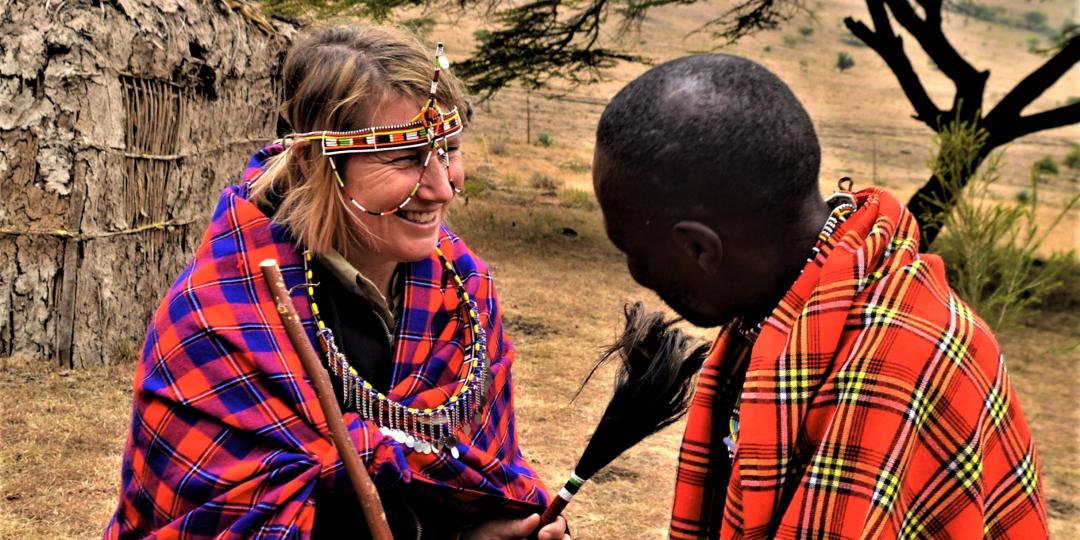One Horizon Africa, a humanitarian not-for-profit organisation working with disadvantaged communities in Kenya, is continuing to secure bookings for its Signature Experiences collection during the COVID-19 pandemic, although most are for next year.
Founder Colin Murray says current bookings between July and October are about 25% of pre-pandemic levels. “These bookings have trickled in during the pandemic and we’ve had as many cancellations as new bookings.”
Murray presented the organisation’s offerings during a recent webinar hosted by the African Travel and Tourism Association (ATTA), in conjunction with the Kenya Tourism Board, to promote Kenya’s enriching cultural tourism experiences.
One Horizon Africa’s sustainable projects focus on women, grandmothers, the youth, the Maasai as well as eco and conservation issues. The itineraries showcase amazing people, foster engagement between travellers and communities, visit locations off the beaten tourist track in Nairobi and promote social good.
Murray says the pandemic has had less of an impact on those within the communities who have businesses set up with the help of One Horizon Africa. “For example, our grandmas in our pig-farming projects are doing quite well. Breeding and sales of pork have continued through the pandemic because the supply chain includes a multinational distributor who buys whatever we have.”
He adds: “We’re blessed by the fact that, despite how tough it has been across the world, we have supporters who have continued to make small donations that help us prop up those in greater need.”
Unfortunately, the impact of the pandemic and the organisation’s curtailed expenditure has been devastating on tour guides and tradespeople such as builders, he says. “We’re obviously not doing the building we used to do and the fact that funds are not flowing to support our infrastructure programmes has been difficult for them.”
As a consequence, there have been more requests for food support and a significant increase in hunger and malnutrition. “The local communities have suffered from the necessary lockdowns that occur regularly here. People have lost their jobs and livelihoods. I have taken about three to four calls a day from distressed people wanting us to help feed their families. That’s the tip of the iceberg.”
Culturally immersive experiences
For people wanting to book a culturally immersive experience, Murray offers reassurance that the centres and projects are in open-air locations. “We’re not a tour bus experience. Our tours are small group experiences and so the enjoyment factor is still there. In all our communities, we’ve not had a single case of COVID-19 and whilst our vigilance remains strong, we are confident in the health and safety of our guests.”
He says the team has also launched a series of experiences that expose travellers to the cultural perspective of Kenyans in relation to events such as Mother’s Day and International Women’s Day.
“Due to our strong affiliation with our Maasai communities, we’ve been invited to weddings and rites of passages such as naming days. We’re able to bring our guests to participate in these incredible events.”
He says for those travellers who are celebrating their own ‘life event’ in Kenya (i.e. birthday, reunion of family, marriage), a party is organised with the local villagers and celebrated with singing and dancing.
Over the last few years, One Horizon Africa has seen significant growth from the American market, particularly from African Americans (about 85% of US clients). “Americans are also the most generous in terms of support for projects via donations.”
Recently the interest from Southern Europe (Spain, France and Italy) has also been growing, he adds.























